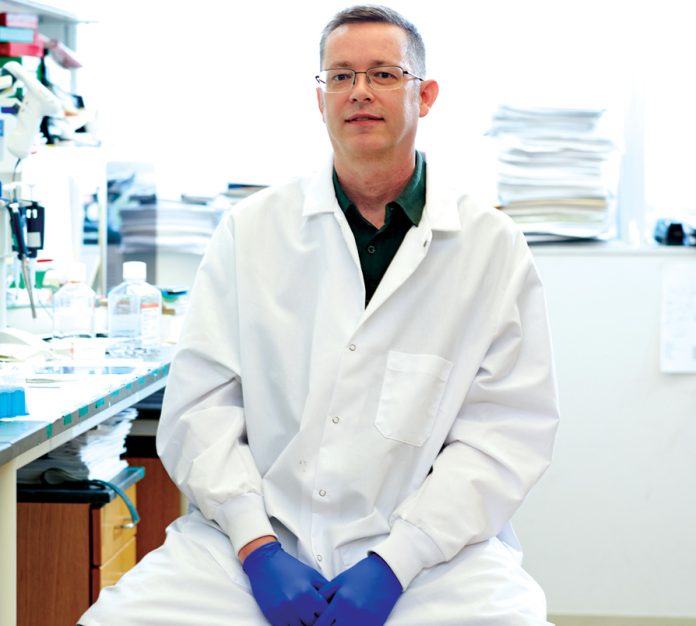The National Institutes of Health has awarded the Oklahoma Medical Research Foundation $2.6 million to unravel how mutations in a single gene connect to skin health.
With the five-year grant, OMRF scientist Lorin Olson, Ph.D., will continue his research on a protein signal called platelet-derived growth factor (PDGF), which plays a key role in the body’s ability to repair wounds. But too much PDGF promotes scar tissue formation called fibrosis as well as inflammation, making proper balance key. Olson’s research focuses on understanding how PDGF works.
It was previously discovered that mutations in a gene associated with PDGF — PDGFRB — can lead to a pair of rare skin diseases. Penttinen syndrome causes skin to age prematurely, while Kosaki overgrowth syndrome causes cells to overproduce, resulting in thick raised scars resembling keloids.
With the new grant, Olson is investigating how PDGFRB variants affect different skin cells and how mutations in one gene can trigger such contrasting disease symptoms.
“Like a circuit breaker sending signals to power appliances in your house, PDGFRB sends multiple downstream signals into the cell,” Olson said. “We think these two mutations are causing different changes in the downstream signals.”
Fortunately, said Olson, there are already approved medications for the pair of skin disorders connected to PDGF. “But by understanding the roles of each of the downstream signals, we’ll be on the path to identifying new therapies to treat other conditions where PDGF is implicated, such as wound healing, fibrosis and cancer,” he said.
“Dr. Olson is an acknowledged expert on PDGF signaling, but these two skin diseases illustrate how much we still need to learn about its impact on human health,” said OMRF Vice President of Research Courtney Griffin, Ph.D. “I’m excited to see what his research uncovers.”
Olson’s grant, 1R01AR080896-01A1, was awarded by the National Institute of Arthritis and Musculoskeletal and Skin Diseases, part of the National Institutes of Health. His lab will collaborate with researchers at the University of Oklahoma Health Sciences Center.
For more information about Mercy OKC visit: https://www.mercy.net/













